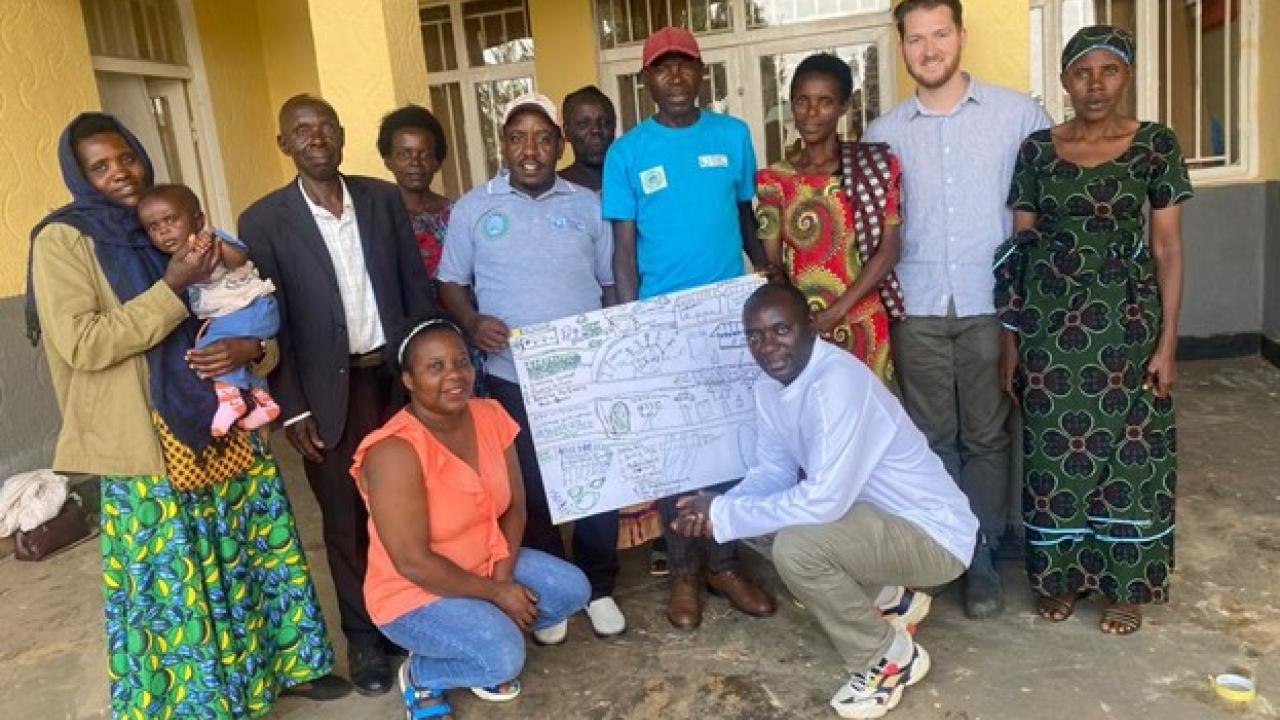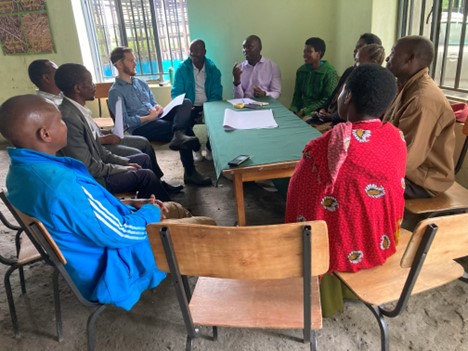
Micah Metts-Houston: Scaling Conservation Agriculture in Rwanda Through Farmer Field Schools
Quick Summary
- Micah Metts-Houston: Scaling Conservation Agriculture in Rwanda Through Farmer Field Schools

In Rwanda, smallholder farmers are the primary food producers for the entire country yet are most affected by food insecurity from crop failure. Although Rwanda has a favorable climate, farmers are increasingly vulnerable to environmental shocks in the form of inconsistent and often destructive rainfall followed by long dry periods. In addition, Rwanda is densely populated and most farmers intensely cultivate extremely small landholdings of less than 0.5 hectares, leading to soil degradation and erosion.
I received funding from the Global Fellowship for Agricultural Development and Jastro to travel to Rwanda and conduct research on a farmer field school (FFS) program focusing on conservation agriculture (CA). These schools are supported by a Rwandan grassroots organization, Peace and Development Network (PDN), with whom I built a relationship through a previous volunteer experience. PDN’s founders originally sought to promote peacebuilding and reconciliation within rural communities, eventually leading to project focusing on livelihoods and food security. Through partnerships with several international donor organizations, PDN has built its capacity to train farmers not only on CA principles like minimum tillage and soil cover, but also on topics ranging from postharvest processing and livestock production to gender and conflict management. They have also formed participants into village savings and loans associations (VSLAs), providing financial access to many households, and especially women, who previously had none.

My goal for this research project was three-fold. First, I wanted to provide documentation of PDN’s success that they can use in their advocacy efforts to promote and scale up CA to the national scale. Second, to evaluate their project and provide recommendations to improve and guide future activities. And thirdly, to gain a better understanding of the principles and implementation of farmer field schools as a method of agricultural education and extension. My main research question was: “How does participation in farmer field schools practicing conservation agriculture impact household food security and resilience to climate shocks”.
I conducted my research as a case study of PDN’s FFS groups in Burera and Kayonza districts, which occupy two distinct agroecological zones in the North and the East, respectively. I used qualitative methods, including farmer interviews, to understand individual experiences with climate shocks, food security, CA, FFS, and other topics. I conducted community concept drawing sessions with groups in each district to understand how farmers conceptualize climate resilience on a community level, including pathways from the least to the most resilient community. I also interviewed key informants to gain contextual information on agricultural development initiatives and policies on the local and national scales.
Overall, farmers were very open to sharing detailed information about coping and adaptation strategies toward climate change and food insecurity. They testified to the huge changes in production they’ve experienced on their own plots, as well as how off-farm strategies, such as VSLAs, have allowed them to invest in and diversify their livelihoods and provide them with stability during the lean agricultural seasons. Many farmers were very eager to talk about how their experience learning and working as a group was vital to their understanding and adoption of CA and other agricultural practices. They emphasized the deep nature of FFS learning, and its advantage over more superficial forms of farmer extension as well as its potential to spread knowledge to neighboring farmers.
I learned that farmers place a huge value on the social aspects of FFS. One woman gave a moving testimony about how the group provided her with a healing space where she finally found a sense of joy and happiness that she’d been lacking. As opposed to splitting up after the training cycle, farmers preferred to continue working together to provide information and accountability for each other, access larger plots of land, and save their earnings within a group that they trusted. Every farmer interviewed expressed a desire to continue expanding group activities, and especially for assistance forming cooperatives in order to increase their market access and power.
Besides these findings, I gained practical lessons on community-engaged research: from seating arrangements during interviews to discussing reciprocity with participants and my partner organization. It also involved testing new participatory methods, as well as confronting barriers to including participants in the research cycle beyond data collection. In a context where smallholder farmers have little to no influence on the policies and initiatives that affect them, I hope to address these disparities in greater depth within my own research as I continue my data analysis and validation of findings.
Besides time spent driving with colleagues around the Land of a Thousand Hills, one of my fondest memories was meeting Sina Gérard, the founder of Rwanda’s largest food processing company, which produces iconic Rwanda products like Akabanga chili oil and banana wine. I wrapped up my trip by attending the 2024 African Food Systems Forum in Kigali and meeting up with the UC Davis Feed the Future lab for a workshop on horticultural and nutrition systems.